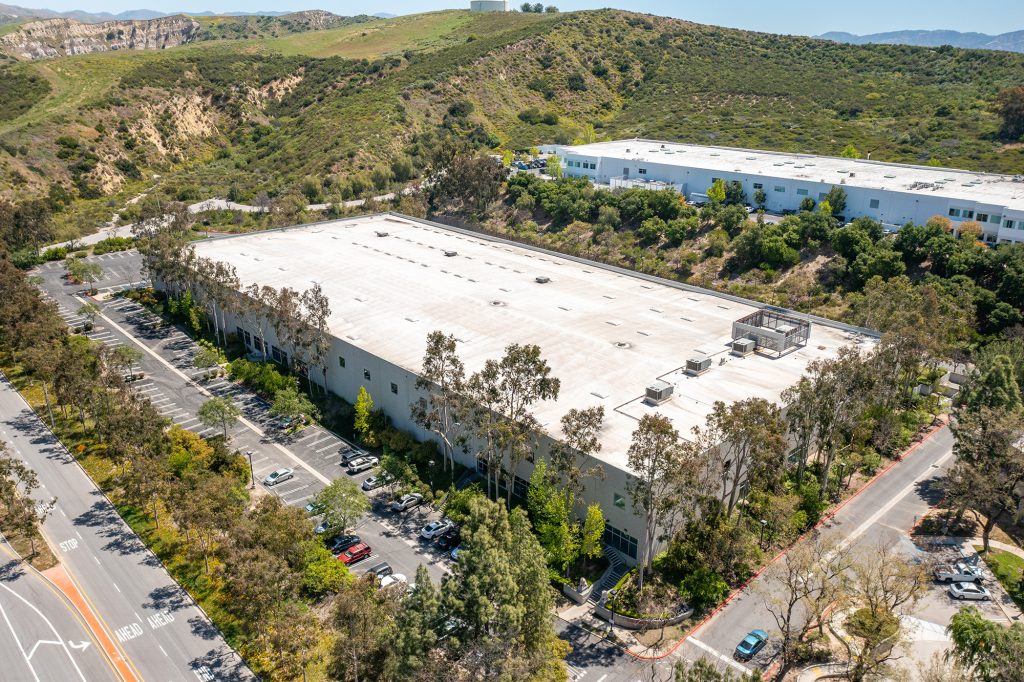Omnichannel Fulfillment Services
Seamless, Accurate, and Scalable Solutions for Your Omnichannel Needs
- Integrated channel coordination: Manage inventory, orders, and returns across retail, wholesale, and ecommerce platforms with seamless synchronization.
- Unified fulfillment across channels: Deliver accurate and timely orders whether they originate from your online store, marketplace listings, or physical retail locations.
- Scalable solutions for omnichannel growth: Leverage flexible logistics networks designed to adapt to diverse channel demands and fluctuating customer needs.

About Our Omnichannel Fulfillment Service
Managing multiple sales channels can feel overwhelming. Keeping inventory synced, meeting delivery timelines, and satisfying customers is no small task. For instance, one delayed order can lead to lost trust or negative reviews.
That’s why our omnichannel fulfillment services are built to simplify the process. Using advanced tools, we make sure to connect your ecommerce, marketplaces, and physical stores into one efficient system. Real-time inventory visibility ensures you never oversell or run out of stock unexpectedly.
Our strategically located fulfillment centers also help reduce shipping times. Imagine your orders reaching customers faster while keeping costs under control. We also provide flexible fulfillment options, so whether you’re shipping to retail partners or directly to buyers, we’ve got you covered. With a focus on seamless integration and tailored solutions, we help you exceed customer expectations. Let us handle the logistics while you focus on growing your business.
River Plate Omnichannel Fulfillment Center Helped Me Solve Complex Challenges
“Our company has been working with River Plate for the past 5 years and they have always gone above and beyond for us. They are very knowledgeable and experienced within the 3PL industry. They have handled everything for us – from fulfillment, to warehousing, distribution, QC, kit assembly – you name it. They are patience and understanding and have helped us solved so many random, last minute issues flawlessly. We highly recommend them!” – Dara Polyak
Our Omnichannel Fulfillment Process
Here is our omnichannel fulfillment process in more detail.
Step 1 – Initial Consultation and Needs Assessment
We begin by understanding your unique requirements across all fulfillment channels. We tailor a solution that aligns with your business goals regardless of whether you’re managing ecommerce, retail, or wholesale operations.
|
Step 2 – Inventory Synchronization and Integration
Then, we sync inventory levels across all platforms by using advanced tools. This ensures inventory visibility, prevents overselling, and maintains accurate stock counts in real time. |
Step 3 – Custom Fulfillment Program Setup
|
Step 4 – Order Processing and Channel Coordination
Orders are processed based on their origin—whether from a physical store, marketplace, or ecommerce platform. Our system ensures accurate and timely omnichannel order fulfillment for all sales channels. |
Step 5 – Real-Time Tracking and Updates
We provide real-time updates on orders, shipments, and inventory management. This transparency helps you monitor your fulfillment operation and ensures you’re always informed. |
Step 6 – Ongoing Optimization and Support
Our work doesn’t end with order delivery. We continuously evaluate and refine your omnichannel fulfillment solutions to meet changing customer expectations and ensure long-term success. |
Why Trust Us With Your Omnichannel Fulfillment Needs
Here is why you can trust us with your omnichannel fulfillment needs.
– Decades of Experience
With over 30 years in logistics, we understand what it takes to deliver a successful omnichannel fulfillment strategy. From adapting to the rise of ecommerce fulfillment to supporting modern omnichannel retailers, we’ve been at the forefront of industry evolution.
– Tailored Fulfillment Solutions
No two businesses are alike, and we know that. Whether you need a unique omnichannel approach for multichannel fulfillment or flexible fulfillment options, we craft solutions that align with your specific needs and goals.
– Seamless Integration
Integration should feel effortless. Our systems connect seamlessly with your platforms, ensuring a smooth customer experience across channels. This unified omnichannel strategy keeps your operations efficient and your customers happy.
– Proven Scalability
Growth is exciting—but challenging. We’ve designed our solutions to scale with your business, which ensures operational efficiency as your fulfillment needs expand. Whether you’re a small startup or a growing retailer, we’re ready to adapt.
– Customer-Centric Execution
Your customers expect speed, accuracy, and convenience. We prioritize delivering exceptional service through every step of the process, which ensures a flawless customer experience. When your customers are satisfied, your business thrives.
About Us

River Plate Inc. has been a trusted name in logistics and omnichannel fulfillment for over 30 years. Founded in 1992 as a small, family-run freight coordination business in Los Angeles, we’ve grown into a leading 3PL provider. Our journey has been shaped by listening to our clients and adapting to the evolving demands of omnichannel retail and ecommerce fulfillment.
Today, we offer a wide range of services, from inventory management to warehouse operations, cross-docking, and tailored fulfillment solutions for retail, wholesale, and dropshipping. We believe in combining advanced technology with a personal touch, which ensures a seamless customer experience every step of the way.
With a focus on innovation, efficiency, and scalability, River Plate operates as an extension of your business. We’re here to simplify your supply chain, support your growth, and deliver the operational efficiency you need to thrive in the competitive market.
Here Are the Integrations We Offer

We integrate seamlessly with BigCommerce to streamline inventory management and ensure accurate order fulfillment across your online store.

Our CS-Cart integration simplifies order processing and synchronizes inventory for a smooth multichannel operation.

We connect with Magento and Magento2 to optimize order fulfillment and maintain accurate stock levels for your ecommerce business.

Our OpenCart integration automates order management and enhances efficiency for your online store operations.

We support PrestaShop with real-time inventory updates and fast, reliable order processing to improve your fulfillment flow.

Our Shopify integration ensures seamless inventory tracking and order fulfillment for a hassle-free ecommerce experience.

We sync with Squarespace to provide accurate inventory management and efficient order processing for your storefront.

Our Volusion integration streamlines your fulfillment operations by automating inventory updates and shipping coordination.

We connect with Wix to simplify inventory management and enhance the accuracy of your order fulfillment.

Our WooCommerce integration enables seamless order management and real-time inventory synchronization for your online store.

We work with Yahoo stores to ensure smooth order processing and consistent inventory tracking for efficient fulfillment.

Our Zoey integration simplifies fulfillment by automating inventory updates and improving order accuracy across channels.

Our Amazon integration ensures smooth order processing and inventory management for a seamless selling experience.

We support Amazon Direct Fulfillment by managing shipping logistics and inventory to ensure timely deliveries directly to customers.

Our FBA Restock service simplifies inventory replenishment to keep your products available in Amazon fulfillment centers.

We integrate with ChannelAdvisor to centralize inventory and streamline order fulfillment across multiple marketplaces.

Our eBay integration automates order management and ensures fast and accurate shipping for your customers.

We provide efficient fulfillment for Etsy sellers, which ensures timely delivery and precise inventory tracking.

Our Faire integration simplifies wholesale order processing and ensures reliable fulfillment and inventory management.

We handle fulfillment for Goldbelly and make sure that the specialty food products are shipped fresh and on time.

Our Groupon Goods integration manages bulk order fulfillment, which helps you deliver products efficiently.

We support Houzz sellers with streamlined order processing and accurate inventory management for home and decor items.

Our OnBuy integration simplifies inventory tracking and ensures fast, reliable order fulfillment for this growing marketplace.

We optimize Overstock fulfillment by managing inventory and processing orders quickly and accurately.

Our Walmart integration ensures smooth order fulfillment and inventory updates to meet marketplace requirements.
We provide efficient inventory management and order processing to meet Wayfair’s fulfillment standards.

Our Wish integration ensures timely order fulfillment and accurate inventory synchronization for your marketplace listings.

We integrate with AIMS360 to streamline order processing and inventory management for fashion and apparel businesses.

Our ApparelMagic integration simplifies inventory tracking and automates fulfillment for apparel-focused operations.

We work with Centra to centralize ecommerce operations, which ensures accurate order fulfillment and inventory updates.

Our Dear Systems integration provides real-time inventory management and efficient order processing for growing businesses.

We connect with Extensiv 3PL Warehouse Manager to optimize warehouse operations and enhance fulfillment efficiency.

Our Extensiv Order Manager integration synchronizes orders across multiple channels for seamless fulfillment.

We support Linnworks integrations to automate inventory management and streamline multi-channel order fulfillment.

Our NetSuite integration offers a complete solution for managing inventory, orders, and fulfillment within a single platform.

We integrate with Orderbot to simplify order processing and ensure real-time updates for inventory and fulfillment.

Our PulseCommerce integration automates fulfillment processes and enhances inventory accuracy across channels.

We work with Radial to provide seamless management of inventory, orders, and shipping for omnichannel fulfillment.

Our SPS Commerce integration streamlines electronic data interchange (EDI) for precise order and inventory management.

We connect with Tradefull to centralize order fulfillment and optimize inventory across multiple sales channels.

Our TrueCommerce integration automates EDI and order management processes for enhanced fulfillment efficiency.

We partner with Uniware Clearconnect to provide real-time inventory synchronization and streamlined order fulfillment.

Our Vin eRetail integration simplifies multi-channel inventory and order management and ensures accurate and timely fulfillment across platforms.

We partner with Ware2Go to provide scalable and flexible fulfillment solutions tailored to your omnichannel needs.

We integrate with Lightspeed Retail to connect in-store and online sales and streamline inventory and order management.

Our Lightspeed X-Series (Vend) integration ensures accurate inventory tracking and seamless fulfillment across sales channels.

We integrate with Keap to sync customer data and streamline order fulfillment, which creates a cohesive customer experience.

Our Salesforce integration connects customer management with order fulfillment, which ensures smooth operations and enhanced customer satisfaction.
What Clients Have to Say About our Omnichannel Fulfillment Services
|
Absolutely Professional |
|
“1st of all it’s a nice size building, the parking lot is clean an theres qlot of parking, beautiful 360 view. When I walked in, I rang the bell that’s sitting on the deck an I was helped by a gentleman an he was very helpful, I was able to contact the person I was there to see with the help I got. The couple of times I been inside the building, they are polite an helped me deliver the letter to the person I was there to see.💯 I highly appreciate it. An if their excellent with helping a Guess, I can just imagine how great they’re l with their work. Absolutely professional, no doubt about that.👍” – Josue Mendez |
|
Exceptional Communication |
|
“River Plate, Inc is an Amazing company with excellent communication and customer service. We have been with River Plate for a few years now and we are very thankful with the service we receive. Yolanda/Leo our company Reps. and the rest of the staff go above and beyond for their clients and I really appreciate that.” – Frances Fregoso |
|
Reliable and Experienced |
|
“Our company has been working with River Plate for the past 5 years and they have always gone above and beyond for us. They are very knowledgeable and experienced within the 3PL industry. They have handled everything for us – from fulfillment, to warehousing, distribution, QC, kit assembly – you name it. They are patience and understanding and have helped us solved so many random, last minute issues flawlessly. We highly recommend them!” – Dara Polyak |
What You Get When You Work With Our Omnichannel Fulfillment Center
Here is what you get when you work with our omnichannel fulfillment center.
– Centralized Inventory Management
Managing inventory across multiple channels can be complicated, but we simplify it by centralizing everything in one system. Our technology ensures accurate stock levels, real-time updates, and synchronization between platforms. This reduces errors like overselling or stockouts, which also keeps your operations smooth and efficient.
– Seamless Multi-Channel Integration
Our integrations connect your ecommerce platforms, marketplaces, and retail systems into a unified network. Orders, inventory, and customer data flow seamlessly between channels, which results in an effortless fulfillment process. We ensure everything works in harmony regardless of whether you’re selling omnichannel on Amazon, Shopify, or in a physical store.
– Accurate and Efficient Order Fulfillment
Precision and speed are at the heart of our fulfillment process. Each order is processed accurately, packaged with care, and shipped on time. We help you build trust and improve customer satisfaction by meeting customer expectations consistently, day in and day out.
– Scalable Logistics Solutions
As your business grows, your fulfillment needs will evolve. Our scalable solutions are designed to adapt to increasing order volumes, new sales channels, and fluctuating customer demands. With us, you’ll always be ready to expand without worrying about logistical challenges.
– Real-Time Tracking and Reporting
Stay informed with real-time updates on inventory, orders, and shipments through our advanced tracking systems. You’ll have full visibility into your fulfillment operations, which supports smarter decision-making and better performance management. Transparency is key to keeping your business agile and efficient.
Additional Services
Wholesale / B2B / Retail Fulfillment
We specialize in wholesale, B2B, and retail fulfillment with accuracy. Our services include routing guides, palletized shipments, and compliance management to keep your supply chain running efficiently.
Parcel Optimization
Optimized shipping reduces costs significantly. We evaluate your packaging, carrier options, and rates to create a cost-effective and efficient solution tailored to your needs.
Ecommerce Fulfillment Services
Accurate, fast fulfillment is essential for success. We manage inventory, process orders, and handle shipping with advanced systems and strategically located facilities to help you grow effortlessly.
Value Added Services
A great product presentation makes a difference. With services like labeling, custom packaging, and quality checks, we ensure your products leave a lasting impression and improve customer satisfaction.
Warehousing
Flexible and secure storage solutions that meet your business needs. Our well-organized, strategically located warehouses offer real-time inventory tracking and fast shipping options.
Amazon FBA Prep and FBM
We provide Amazon FBA and FBM preparation services, which include labeling, packaging, and compliance to meet Amazon’s strict requirements.
Cross-Docking Services
Reduce storage time with efficient cross-docking. We move shipments directly from inbound to outbound delivery, which improves speed and efficiency in your supply chain.
Kitting Services
Our kitting services create ready-to-ship packages by combining multiple items into accurate, well-prepared bundles. Each kit is carefully assembled to meet your requirements.
Returns Management
We handle returns from start to finish, including receiving, inspecting, and restocking items. This ensures smooth operations and builds customer trust and loyalty.
Freight Logistics
Our domestic and international freight solutions ensure precise and timely deliveries. We handle shipments of all sizes with cost-effective strategies to keep your business moving.
Inventory Management
Stay in control of your stock with our advanced Warehouse Management System (WMS). Real-time tracking provides full visibility and keeps your operations efficient and prepared to meet demand.
Frequently Asked Questions
Our fulfillment center connects to all your sales channels and consolidates inventory and order management into one streamlined system. This ensures that every order, whether from an online marketplace or a retail store, is processed accurately and efficiently. We also provide tools for tracking and reporting, which helps you maintain visibility and control over your entire operation.
Yes, we specialize in managing both B2B and B2C orders. For B2B, we handle bulk shipments with routing guides and compliance requirements. For B2C, we ensure timely and accurate deliveries and primarily focus on packaging and order precision to meet customer expectations.
We use a centralized inventory management system that updates stock levels in real time across all sales platforms. This prevents overselling, minimizes stockouts, and keeps your inventory data consistent. With detailed reporting, you’ll always have a clear view of inventory levels and performance.
Our fulfillment solutions are designed to adapt to your needs as your business grows. Whether you’re adding new sales channels, increasing order volumes, or expanding into new markets, we provide the flexibility and infrastructure to support your growth. Our scalable services ensure you’re never limited by logistics constraints.
Yes, we offer real-time tracking tools that allow you and your customers to monitor orders and shipments. This transparency builds trust and ensures that you can address any potential issues proactively. With visibility at every stage, you’ll have peace of mind knowing your fulfillment process is running smoothly.
Our returns management services include receiving returned items, inspecting them for quality, restocking inventory, and processing refunds or exchanges as needed. We streamline the returns process to minimize disruptions to your operations.
We integrate with leading platforms like Shopify, WooCommerce, and Magento, as well as marketplaces like Amazon, Walmart, and eBay. These integrations ensure smooth inventory synchronization, accurate order processing, and efficient fulfillment. Our goal is to create a unified system that simplifies your operations.
We analyze your shipping needs and negotiate rates with top carriers to find the most cost-effective options. We reduce delivery times and expenses by consolidating shipments and using strategically located fulfillment centers. This allows you to save money while maintaining fast and reliable service for your customers.
With over 30 years of experience, we bring unmatched expertise to your logistics needs. Our tailored solutions focus on streamlining operations to ensure scalability, and delivering excellent customer experiences.








